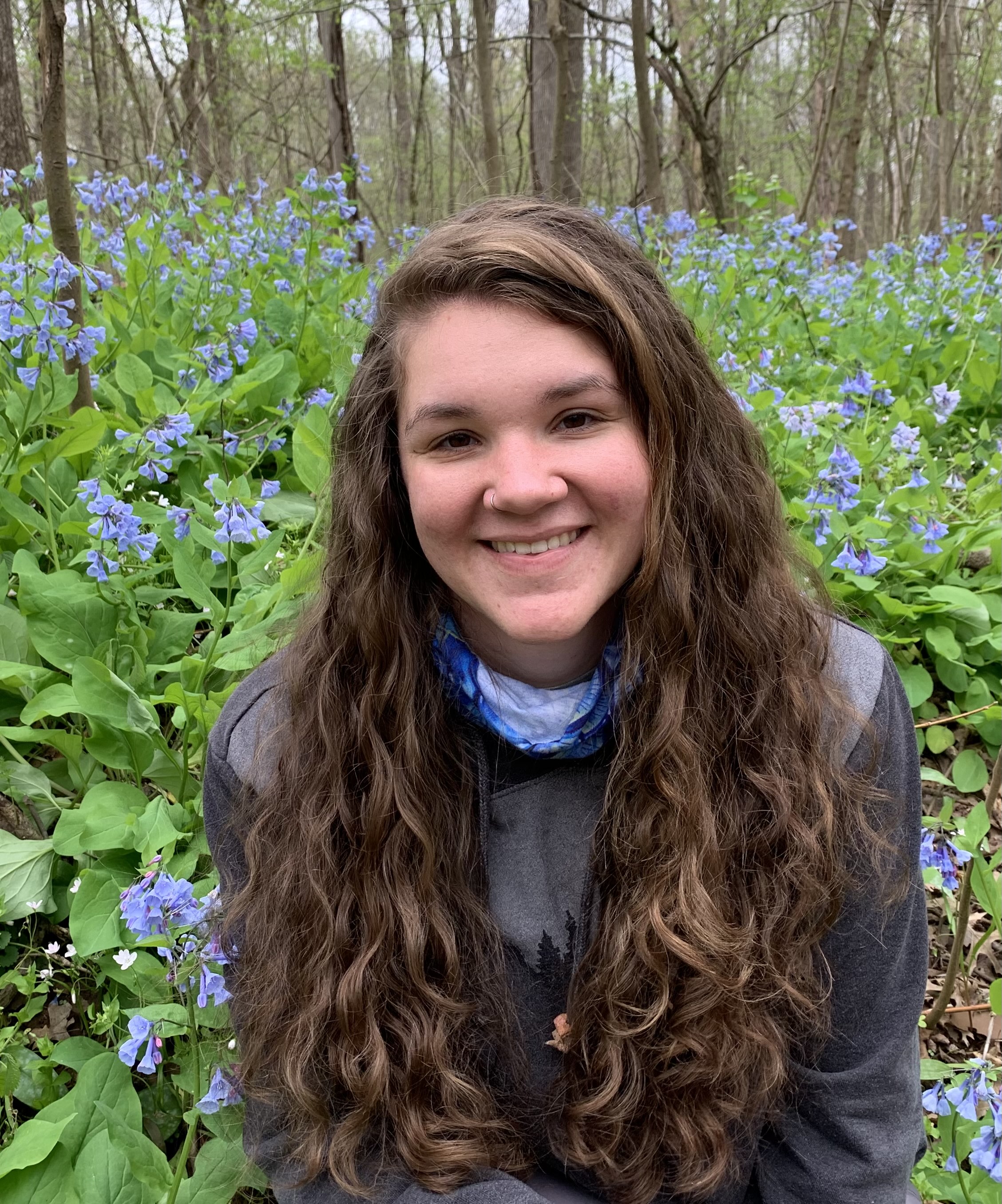Finding work–life–school balance: Tips from our students
February 1, 2022

By Lindsay Key
Studying for a master’s degree while working and having a family or other commitments may seem like a daunting combination for many professionals, regardless of career stage. But students in Virginia Tech’s Master of Natural Resources program have found that it’s possible to not only survive—but thrive.

Andrew Ernest, who graduated from the MNR (Online) program in December 2021, completed his coursework in just five semesters while working full time, changing companies, and braving a cross-country move from Illinois to California. When he started the program in May 2020, Andrew was working as a sustainability associate at FourKites, Inc, a real-time supply chain visibility platform that major global companies use to track and manage their freight. Andrew was tasked with helping his employer define sustainability and develop an actionable plan to operate sustainably, and he decided to pursue the MNR degree to gain more technical knowledge to bring to his role. (Andrew’s work at FourKites was a subject of an earlier post.)
Not only did the courses help him gain the knowledge and skills needed for his position at FourKites, Inc., but they also prepared him for another role as sustainability analyst at Rivian, an American electric vehicle automaker and automotive technology company. Andrew started his new position in May 2021.

October Greenfield, who also graduated from the MNR online program in December 2021, completed the program in just three semesters, after transferring in three natural resources elective courses from South Dakota State University. October received her bachelor’s degree in wildlife and fisheries sciences from South Dakota State University in 2015, but also took a few graduate courses during her time there.
She first heard of Virginia Tech’s master’s degree focused on sustainability from friends in the hybrid Executive Master of Natural Resources (XMNR) program. October decided to pursue the MNR online because it was completely virtual and worked best for her full-time work schedule.
Like Andrew, she also changed positions while in school, starting as an Upper River Steward for Friends of the Rappahannock, a non-profit devoted to river conservation, and moving to a position as Wildlife Habitat Restoration Coordinator for the Piedmont Environmental Council, a nonprofit devoted to promoting and protecting the Virginia Piedmont’s rural economy, natural resources, history, and beauty.

Kelly White will graduate from the MNR online program in the summer of 2022. He studied in the program while also working as a Middle School Science Teacher at St. John’s School in Houston, TX, and raising a family. He and his wife have an eight-year old child. “I used to think I needed to be in a classroom in order to focus and learn, but the online MNR program has shown me otherwise,” said Kelly. “I teach middle school Earth Science and serve in various other roles at my school, along with having a kiddo and trying to be a decent helper to my wife.”
October, Andrew, and Kelly have several tips for students attempting a work–life–school balance:
Plan ahead
It might sound simple, but spending some time with the course syllabus the minute it’s released can do wonders for stress levels later in the semester. Andrew recommended using a desk calendar or app and marking the dates that large projects are due, so you can be sure that these times don’t coincide with major work projects or family trips.
“For me, writing it all down and really understanding where everything fits in from a big picture perspective instead of trying to ‘wing it’ made the most sense,” he explained. “That way, I could plan for what was coming up—how much time I needed to commit and when.”
“I try to plan ahead as much as I can, and most of the courses in the MNR program are really conducive to this, so that I can get my work done and still save some time to enjoy my family,” noted Kelly.
If you do find that you have a conflict—such as a large project deadline coinciding with a work or family event—most professors are willing to work with you, October said, as long as you let them know far enough in advance (another reason to plan ahead!).
“Don't be afraid or nervous to reach out to your professor if you're struggling with anything, or if you have anything that comes up in your personal or professional life that might make you have a delay in an assignment,” said October. “I found that they've all been really understanding when things come up.”
Carve out time every day
In order to graduate in three semesters, October enrolled in at least two courses per semester, and in Fall 2021, she took as many as three. This required her to manage her time especially effectively, and a strategy she found most useful was carving out one or two hours each day for schoolwork and sticking to the schedule.
“The easiest way for me to balance the schoolwork load was to spend an hour or two every evening working on stuff so that things didn't pile up at the end of the week and feel overwhelming,” she said. Just like walking the dog or making dinner, it became part of the day’s routine.
The format of the program also makes it easy to work at a reasonable pace each day. “The asynchronous nature of the MNR program is something I have really come to appreciate,” said Kelly. “It allows me to do homework whenever I have some free time so that I can parcel out my work instead of having to do it all at once.”
To add to that, the rise in remote work has made it much easier for workers to transition from the workday into schoolwork in the evening, pointed out Andrew. The time that was once spent commuting home can now be spent on other activities, like school.
Believe in yourself
All of the students stressed that the most important tool for work–school–life balance is the confidence that you can, and will, make it work. “I would tell students, ‘Don’t sell yourself short’,” emphasized Andrew. “Obviously, we’re all very busy, but doing school part-time is not as overwhelming as you might think.”
Because it is delivered online and asynchronously, the MNR program allows students to work on projects at times that are convenient for their schedules. The curriculum itself is also flexible, and most of the courses can be taken in any order. And, if it comes to it, said Andrew, there is always the option to reduce the course load from two classes to one, or even take a semester off, if school becomes too overwhelming. “As long as you’re committed to it, and know how to plan and schedule, it’s very manageable,” he said.


